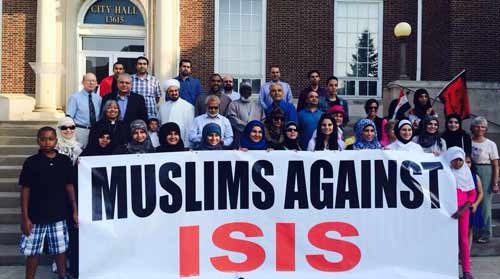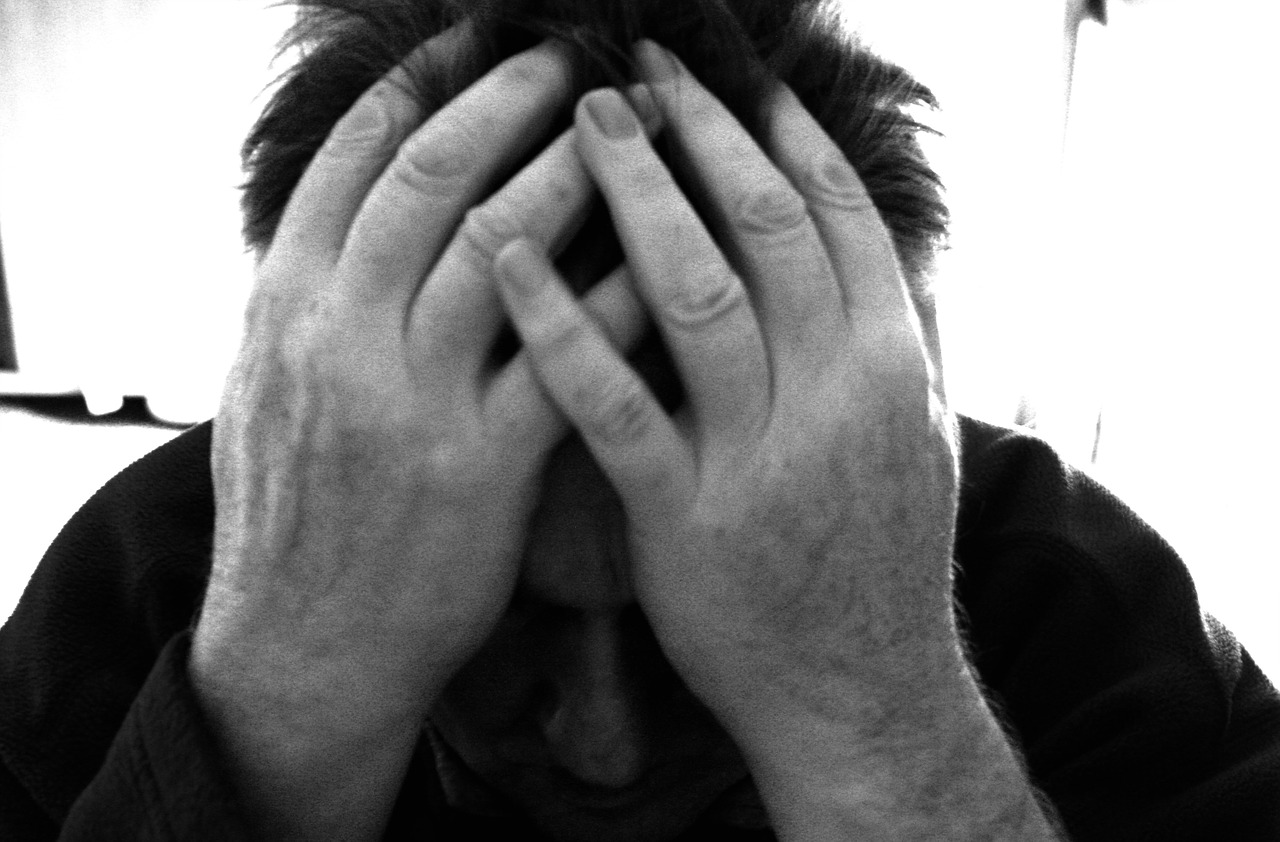The tragic shooting in Parramatta just over a week ago put the subject of terrorism back into news headlines. But how much of discourse in the aftermath needs serious reconsideration? Mohamad Tabbaa explores the impact of activists’ responses…
Another attack, another cycle of media commentary, accusations, counter-claims, condemnations and confusion. While it has almost become a repetitive ritual to many of us, it is the way that we respond in the aftermath of terror or Muslim violence and the unforeseen consequences of those responses that bear examination.
Anybody who has dealt with media concerning Muslim issues will have experienced the difficulty of the speaking positions available to Muslims at that moment. It is most accurately described as a double-bind, and captured perfectly by Spivak in her 2012 book, An Aesthetic Education in the Era of Globalization :
“When we find ourselves in the subject position of two determinate decisions, both right (or wrong), one of which cancels the other, we are in an aporia which by definition cannot be crossed, or a double bind. Yet it is not possible to remain in an aporia or a double bind. It is not a logical or philosophical problem like a contradiction, a dilemma, a paradox, an antinomy. It can only be described as an experience. It discloses itself in being crossed. For, as we know every day, even by supposedly not deciding, one of those two right or wrong decisions gets taken, and the aporia or double bind remains.”
Starting from this position, the first thing that becomes immediately obvious is that silence, or refusing to engage, is simply not an option. Silence, in fact, does not equate to non-engagement here given the nature of the bind.
“I condemn”

Muslim Americans gather in Dearborn to condemn ISIS. Image: Natasha Dado.
This leads us to our first common response: the dreaded condemnation. That simple phrase alone sends a familiar chill down so many Muslim spines the moment it is pronounced – and it almost always is.
The problematics of condemnation have been discussed at length over the past few years, and it is safe to say that this ritual is largely on the decline, with only the most inexperienced or embarrassed Muslims still clinching onto this relic of moderate politics. However, we would be mistaken to assume that condemnation is entirely a thing of the past; it has also evolved and taken on new forms.
One of these is the ‘courageous’ condemnation. This is the art of masking the obedient act of condemnation, of responding to the demand and pressure to condemn, by instead insisting that one is going against the grain and bravely condemning. This pronouncement masks itself in veil of courage; “I know it’s not popular,” it fearlessly confesses, “but I must do it nevertheless. I must stem the tide. I must make the difficult decision despite the risks to myself. I must condemn.” This prelude of faux courage is designed to cover the essence of what is otherwise an obedient act; a caving in to heavy pressure to perform the condemnation.
Far from being an act of courage in the face of difficulties, condemnation is the clearest form of conformity and obedience in the aftermath of an attack. And while there is truth in the statement that a moral obligation exists to condemn such violence, after a decade and a half of outright condemnation and clarification, it is safe to say that Muslims have sufficiently fulfilled this moral obligation. Besides, condemnation has long lost its moral edge, and functions primarily as a political act today.
The second form of the new condemnation is the act of condemning without condemning. This trick involves performing all of the actions of the condemnation – denouncing the assailant, reiterating that Islam is peace and the actions in question are un-Islamic, linking the violence to ignorance of true Islamic teachings, and vindicating the tolerant and harmonious nature of Australian society – while falling short of, or outright refusing to actually use the word ‘condemn’. While the refusal to use such a controversial word is welcome, ultimately this practice fails to appreciate that the problem with condemnation is less about the particular word in question, than about the relationship one enters into upon the performance of the condemnation. Hence, continuing the performance of the condemnation while omitting one word is not a solution.
The pressure to condemn is immense, and we should not underestimate the toll it takes on Muslim spokespeople. However, we should continue to insist that we are represented courageously in both word and deed. Likewise, we should not celebrate the refusal to condemn as a victory in and of itself. The refusal to condemn simply represents the lesser of two evils within the Muslim bind, and is still part of the troubling narrative that we should try to break out of.
The good news is that much has changed in the last few years regarding Muslim responses to terrorism and politics generally. The fact that the condemnation is now an embarrassed performance that has to have a courageous prelude is evidence of this shift. However, politics are dynamic rather than progressive, and we therefore need to remain vigilant and responsible with how we redirect these responses.
Shifting away from condemnation, we’ve seen movement towards different explanations for terror. In particular, two prevailing approaches have dominated in recent times, perhaps in tune with the professions of those advocating them. These are the criminalisation and medicalisation of terror.
Terror as Crime

Criminalising terror was a Thatcher government policy. Image: Tex Texin.
The first approach advocates that terror should be dealt with as any other crime; that is, terrorists are just criminals who commit the particular crime of terrorism. This approach has largely formed as a response to the blatant double standards in the way political violence is spoken about when Muslims are involved, as opposed to when they are not.
The logic behind this call is for narrative equality and equality before the law: not bad aims in themselves. However this approach also carries an important underside that should not be overlooked. Crime is largely viewed as a non-political act. It is also viewed largely as an individual or isolated act. In our demand for legal equality, we risk de-politicising what is essentially a political act: terrorism.
It is no secret that terrorism is borne of politics: this is primarily why responses blaming a misreading of Islam are so problematic. Yet the designation of terrorism as a mere crime carries the same risk. If terrorism has any potency, it is in its political valence. Stripping terrorism of its political essence will surely exacerbate its growth, not tamp it down. Our difficult task here, and the bind in this question, is how to morally rebuke terrorism without undermining its status as political; how to disagree with a political pursuit without also erasing the political violence to which it justifiably responds.
Consider the well-known hunger strikes carried out during ‘The Troubles’ in Northern Ireland. When the British government in 1976 changed the status of the Republican prisoners from Special Category Status, which treated them like prisoners of war, to mere criminals, it changed the status of their actions from political violence to violence on par with any other thief, murderer or rapist. Their violence no longer drew attention to a political cause for which they were sacrificing, but was re-designated as the simple breaking of the law. Their imprisonment was initially viewed as part of the struggle. Once they and their actions were criminalised and depoliticised, however, their imprisonment now risked undermining that very struggle.
As a response, the prisoners held a number of protests: the Blanket Protest of 1976, which involved them refusing to wear prisoner clothing but instead go naked or dress only in blankets; the Dirty Protest of 1978, where attacks on prisoners led to their refusing to leave or allow guard entry into their cells, and having to smear their excrement on the walls to manage their waste; and the famous hunger strikes of 1980 and 1981, in which numerous prisoners refused to eat until the British government conceded to their 5 Demands that would reinstate their status as political prisoners. The hunger Strikes resulted in ten inmate deaths.
The point in all of this is that a five-year battle raged between the British government and the IRA over whether the fight between them was political or criminal, with sacrifices made by either side for their case. We could do better than to cede our politics so effortlessly today. Indeed, criminalisation was a deliberate counter-terrorism strategy introduced by Margaret Thatcher’s government in 1976, aimed at de-politicising and hence de-legitimising the claims of their Irish adversaries. In response to the Hunger Strikes, Thatcher famously proclaimed, “Crime is crime is crime; it is not political.”
While one does not have to agree with the methods or even aims of the IRA or Muslims carrying out violent acts today, we have a responsibility to likewise not erase the crimes of the state that underpin such violence. Our role is to bring an end to terrorism by bringing an end to the conditions that produce and encourage it, not by helping to conceal those conditions. We should insist upon a political reading and be wary of approaches that undermine or overshadow this, or that vindicate the systemic perpetration of violence today to which terrorism is a response among many. We should at least be wary if, in the battle for justice, we share a podium with Margaret Thatcher.
Diagnosing Terror
 A short stroll from the criminalisation and individualisation of terror is its medicalisation. This approach draws attention to the mental health of perpetrators of violence, calling for their medical treatment on par with, or as against, their securitisation or criminalisation. “These people need doctors not police,” goes the mantra here. In a similar vein to the above criminalisation, this approach also carries the risk of de-politicising terror. By focusing on the individual and the condition of their mind, attention is drawn away from the political world that the perpetrator inhabits and with which their mind interacts. Violence risks being pathologised, made the product of a process of bad thoughts away from the conditions within which those bad thoughts flourish and materialise.
A short stroll from the criminalisation and individualisation of terror is its medicalisation. This approach draws attention to the mental health of perpetrators of violence, calling for their medical treatment on par with, or as against, their securitisation or criminalisation. “These people need doctors not police,” goes the mantra here. In a similar vein to the above criminalisation, this approach also carries the risk of de-politicising terror. By focusing on the individual and the condition of their mind, attention is drawn away from the political world that the perpetrator inhabits and with which their mind interacts. Violence risks being pathologised, made the product of a process of bad thoughts away from the conditions within which those bad thoughts flourish and materialise.
This approach carries a further risk in that it invites — unwittingly or otherwise — greater intervention into Muslim lives. Recognising mental health problems before they manifest in violence — what is often labelled early intervention or prevention strategies — depends on regular supervision of the ‘patient’. We must observe them in order to know whether they exhibit these symptoms and whether they are likely to commit violence. The recent push for schoolteachers and now parents to keep a watchful eye over their Muslim children needs to be seen as part of this trajectory. What needs to be noted here is that the medical world, like the school, is not apolitical, nor detached from the workings of power. Hospitals, clinics, psychiatrists and criminologists all perform what Michel Foucault called a disciplinary function. Through techniques of surveillance, examination and classification, these institutions work to discipline the body of the subject or ‘patient’, ultimately creating a docile subject — an obedient Muslim.
By way of example, let us imagine our reaction if the violence of Palestinians was re-labelled as mere criminality or the result of mental health issues. Regardless of the truth or otherwise of these statements, and our view towards violence as a means, we would be repulsed by the erasure of Israeli occupation in the explanation of Palestinian violence. We would be angry at the depoliticisation of the Palestinian cause, even while we might disagree with the methods Palestinians advocate.
The Terror of Responsibility
There is of course no ‘correct’ way to respond to terror, particularly in the immediate aftermath of an attack. There are only, at this junction and within this bind, variations of not-so-ideal responses, each of which is measured according to its particular circumstances. While the results of our activism cannot be known in advance, our interventions nevertheless must be strategically planned and their possible implications thoroughly examined, lest we undermine our own efforts. Hence, we need to be cognisant of the logics of our political pursuits outside of our intentions, and of how they can plug into greater trends to have adverse effects – particularly in a volatile environment such as that which we live in.
Let us leave the criminalising and medicalising for police and doctors, respectively. Our role as activists is to bring visibility to that rendered invisible: to demonstrate how politics is the canvass upon which the story of terror is painted.
By Mohamad Tabbaa
Reference
Categories: Politics

1 reply»